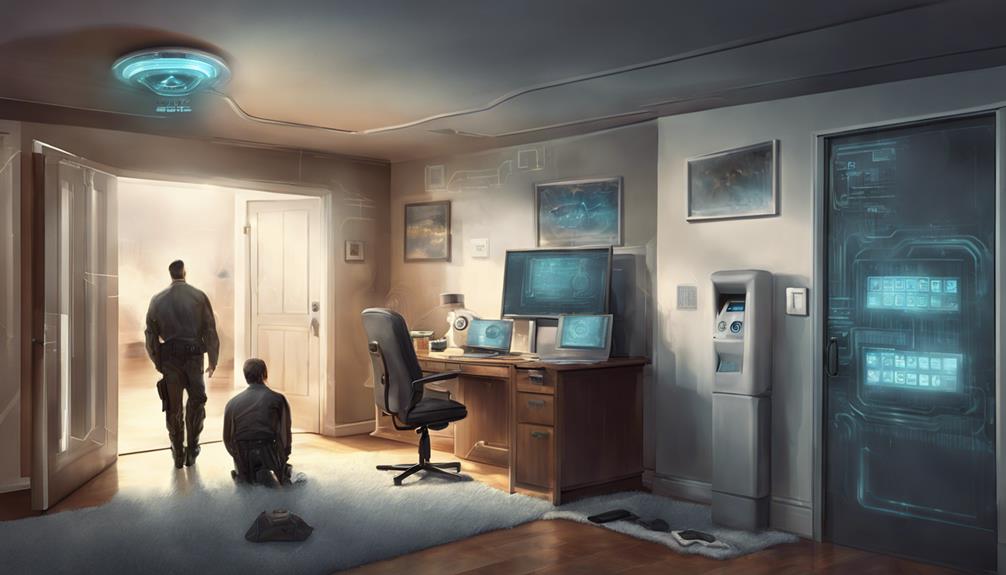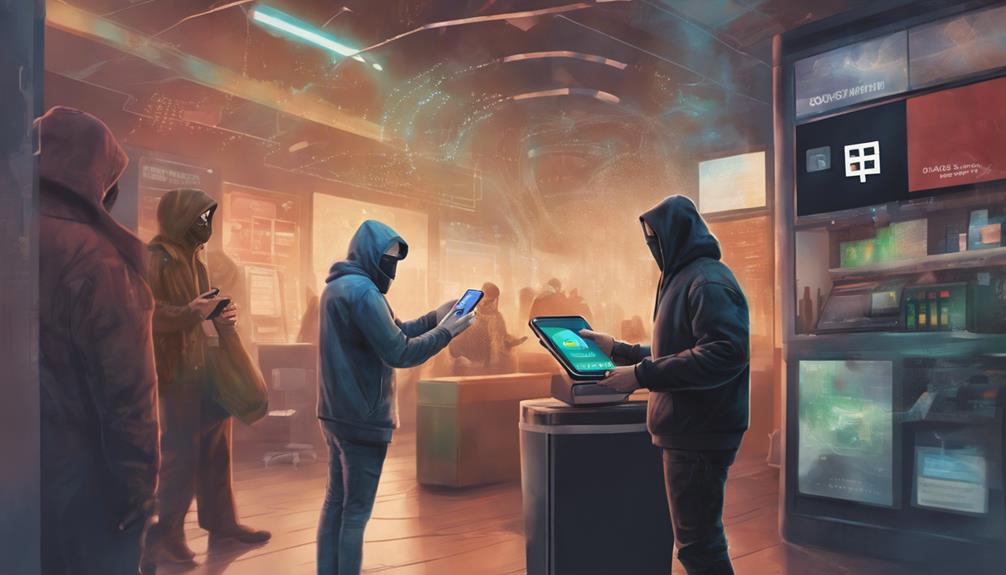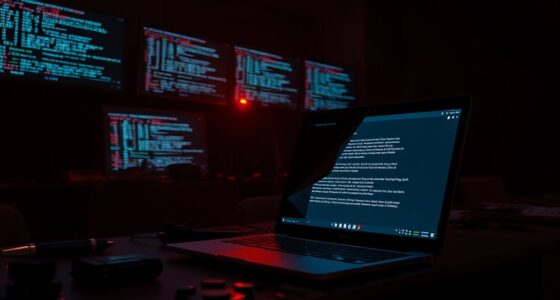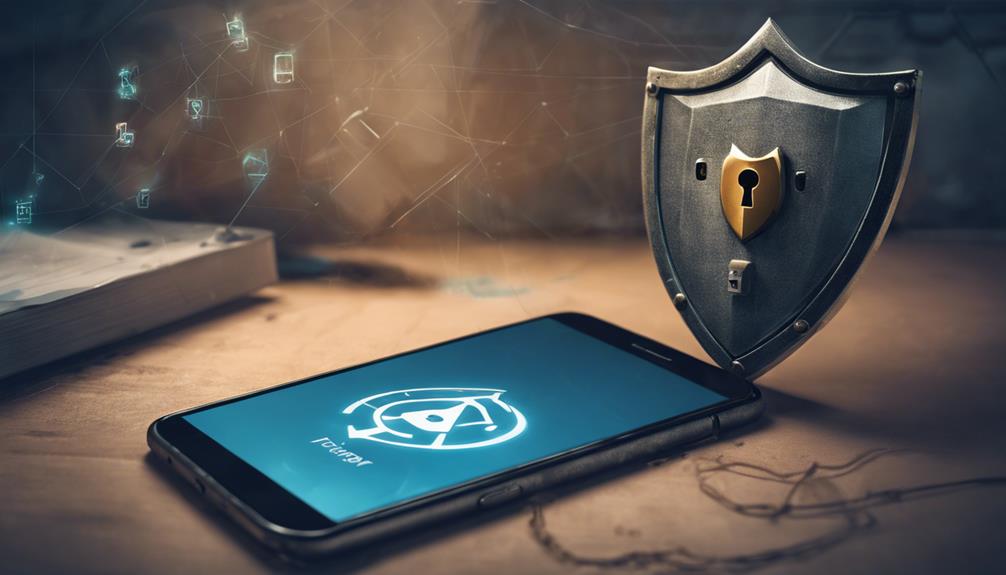For a security system resistant to hackers, prioritize WPA2/WPA3 encryption, AES encryption, end-to-end encryption, HTTPS support, and IP filtering. Regular software updates bolster defenses, shield against exploits, and enhance encryption. Two-factor authentication boosts account security with SMS codes, authenticator apps, and biometric verification. Opt for trusted names like ADT, SimpliSafe, and Vivint for solid protection. Their encryption, updates, and authentication methods fortify against vulnerabilities. Secure cloud storage by encrypting data, using multi-factor authentication, ensuring redundancy, conducting audits, and defending footage from breaches. A robust security strategy is essential for hacker-resistant systems.
Key Takeaways
- Utilize WPA3 encryption for robust security.
- Regular software updates to combat vulnerabilities.
- Implement two-factor authentication for added protection.
- Choose reputable companies with strong security features.
- Secure cloud storage with encryption and multi-factor authentication.
Secure Encryption Protocols
Utilizing secure encryption protocols is crucial for fortifying security systems against potential cyber threats and unauthorized access attempts. Security cameras, particularly wireless security systems, benefit greatly from robust encryption mechanisms like WPA2/WPA3, AES encryption, and end-to-end encryption. These encryption technologies guarantee that data transmitted and stored by security cameras remain secure and protected from malicious actors.
Incorporating HTTPS support on security cameras strengthens data security by encrypting communication between the camera and connected devices, preventing interception of sensitive information. Additionally, implementing IP filtering in security systems enables users to control access by specifying allowed IP addresses, adding an extra layer of protection against unauthorized intrusions.
Choosing security cameras equipped with advanced encryption technologies such as AES encryption further enhances the safeguarding of data during transmission and storage. By leveraging these encryption protocols, security systems can establish a secure environment resistant to hacking attempts and unauthorized access.
Regular Software Updates
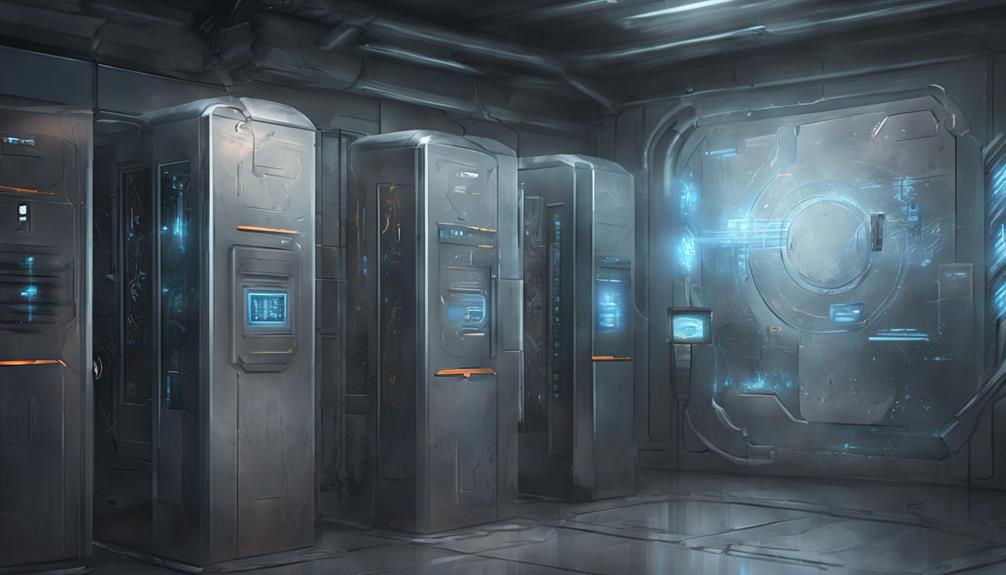
Are regular software updates essential for maintaining the security integrity of security systems?
Updating software regularly is essential in safeguarding security systems from potential vulnerabilities and unauthorized access, especially in the face of emerging threats like camera hacking. By regularly updating software, security systems can benefit from enhanced digital security, improved encryption methods, and strengthened defenses against unauthorized intrusions.
Ignoring updates may leave systems susceptible to breaches due to the exploitation of default passwords or weak user credentials, a risk that nearly every professionally installed security system faces.
Failure to update software can compromise the top three important aspects of a security system: confidentiality, integrity, and availability. Timely updates not only guarantee system performance but also demonstrate a commitment to maintaining robust security measures.
Two-Factor Authentication Benefits
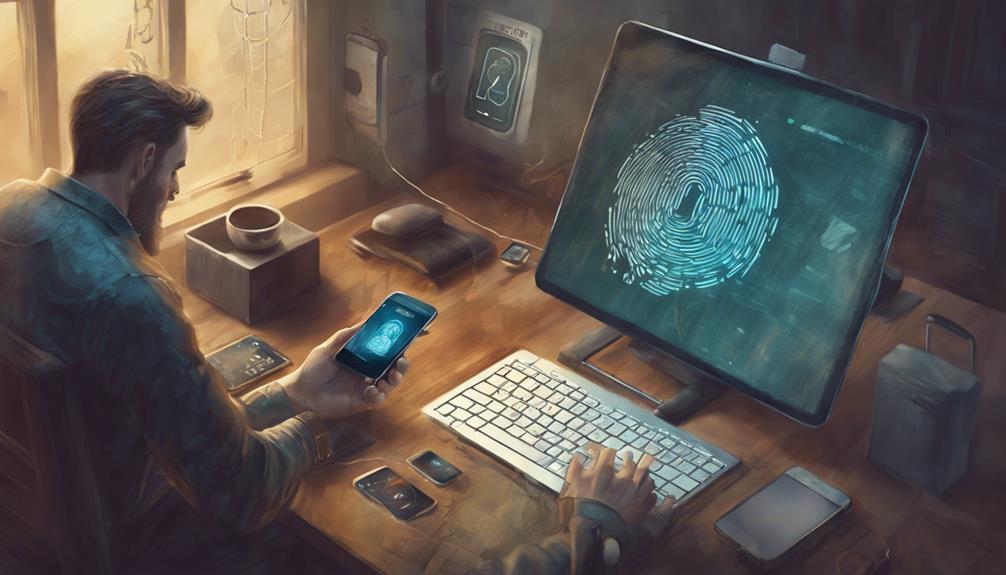
Implementing two-factor authentication greatly enhances the security of accounts and systems by requiring users to provide two forms of identification. This extra layer of security greatly reduces the risk of unauthorized access, even if login credentials are compromised.
For instance, around 90% of Gmail users are protected by two-factor authentication, showcasing its effectiveness in enhancing account security. Common methods used in two-factor authentication include SMS codes, authenticator apps, and biometric verification.
By implementing two-factor authentication, individuals can secure their accounts and protect systems from hacking attempts more effectively. This process guarantees that only authorized users can access sensitive information, adding an essential barrier against potential breaches.
With the rise of cyber threats, the adoption of two-factor authentication has become essential in safeguarding digital identities and maintaining the integrity of online platforms.
Reputable Company Selection

When choosing a security system, it is crucial to prioritize reputable companies such as ADT, SimpliSafe, and Vivint known for their focus on security measures.
These reputable companies invest heavily in encryption, regular updates, and strong authentication methods to safeguard against hacking attempts and unauthorized access. By selecting a trusted company like SimpliSafe or Vivint, individuals can greatly reduce the risk of vulnerabilities within their security systems.
Established security brands like ADT and Vivint have a proven track record of implementing robust security features to protect against unauthorized access and hacking attempts. Opting for a reputable security provider ensures a higher level of protection against potential security threats.
Cloud Storage Security
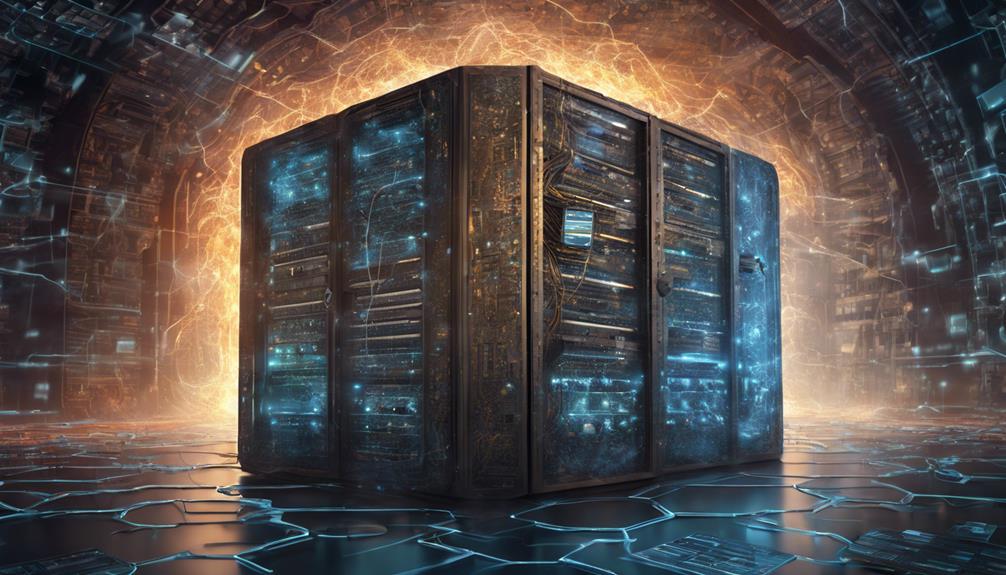
Cloud storage security plays a critical role in safeguarding footage from security cameras against potential hacking threats by employing robust encryption and authentication measures. When considering the security of cloud storage for security cameras, several key factors come into play:
- Encryption:
Cloud storage encrypts data at rest and in transit, guaranteeing that footage remains secure and inaccessible to unauthorized parties.
- Multi-factor Authentication:
Secure cloud storage platforms employ multi-factor authentication to add an extra layer of security, preventing unauthorized access even if login credentials are compromised.
- Data Redundancy:
Measures such as data redundancy help protect against data loss and ensure the availability of footage even in the event of hardware failures or cyberattacks.
- Security Audits:
Regular security audits are conducted to assess and enhance the security of cloud storage systems, identifying and addressing potential vulnerabilities before they can be exploited by hackers.
Frequently Asked Questions
What Security System Cannot Be Hacked?
When contemplating security systems, it is crucial to prioritize robust encryption, authentication measures, and regular updates. Systems with these features, such as those offered by reputable brands like Google, Vivint, and SimpliSafe, are less susceptible to hacking attempts.
What Is the Best Protection Against Hackers?
The best protection against hackers involves implementing robust security measures such as cable transmission, end-to-end encryption, regular software updates, strong passwords, and two-factor authentication. These layers of defense work together to safeguard systems from unauthorized access.
Are There Any Security Cameras That Can't Be Hacked?
In the quest for impregnable security cameras, the pursuit of a system invulnerable to hackers persists. While no system is completely immune, robust encryption, proactive software updates, and wired transmission can fortify defenses against cyber threats.
Can Someone Hack Into My ADT System?
Unauthorized access to ADT systems is a valid concern, as vulnerabilities have been reported. Regular updates and robust security measures are essential to deter hacking attempts. ADT Pulse cameras are noted for their enhanced resistance to hacking compared to other ADT systems.
Conclusion
To sum up, implementing secure encryption protocols, regular software updates, two-factor authentication, selecting reputable companies, and ensuring cloud storage security are essential steps to safeguarding your security system from hackers.
Remember, 'an ounce of prevention is worth a pound of cure' when it comes to protecting your sensitive information and maintaining the integrity of your security measures.
Stay vigilant and proactive in maintaining the highest level of security for your system.
